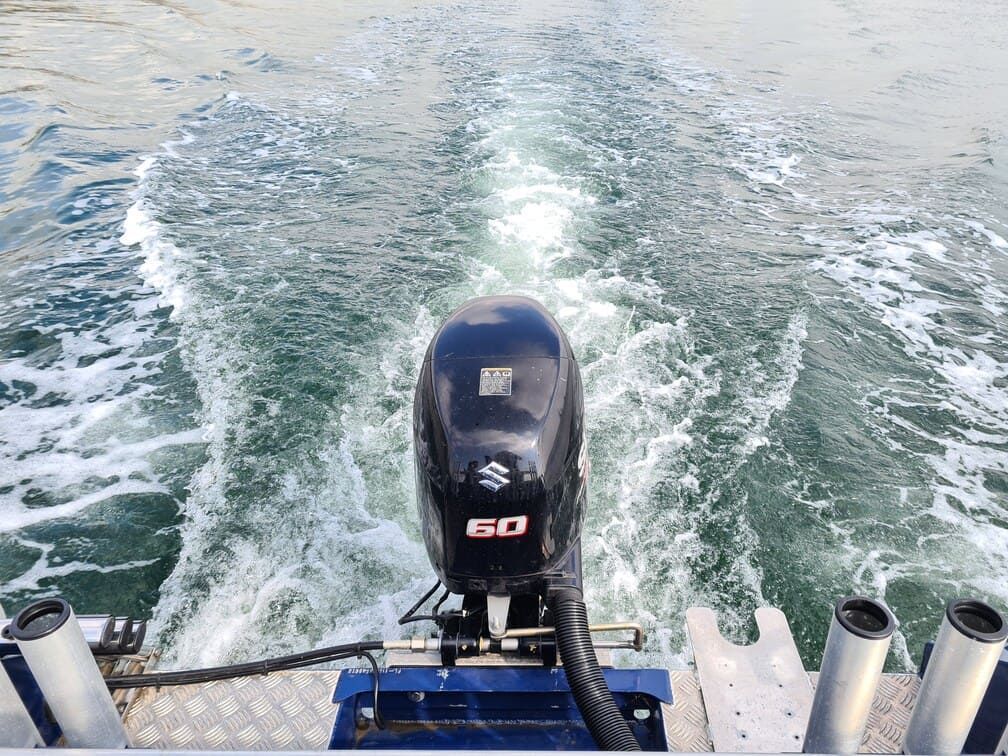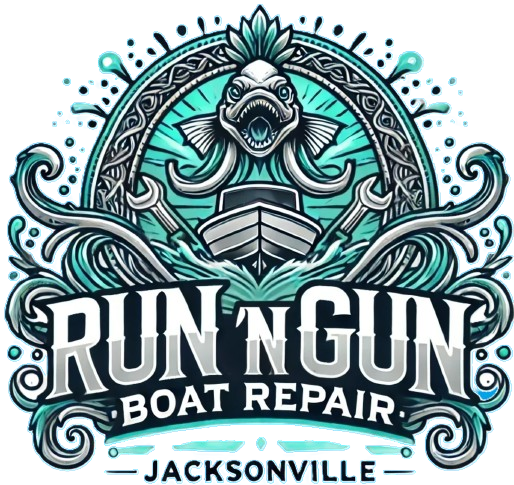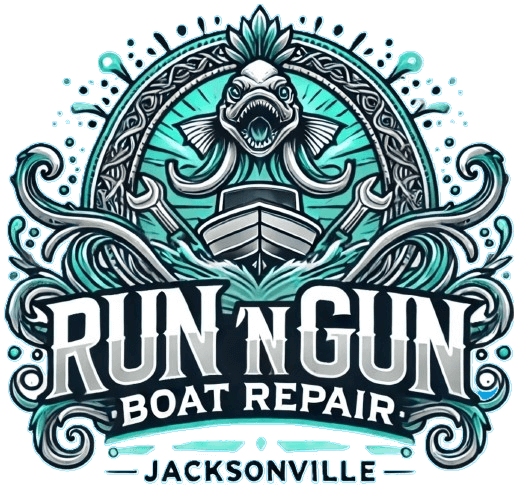What Does a Boat Mechanic Do?
The Work of a Marine Mechanic
Mobile marine mechanics are the unsung heroes of the boating world. They ensure that vessels of all shapes and sizes run smoothly, safely, and efficiently. From routine maintenance to complex repairs, these skilled professionals play a crucial role in the maritime industry. If you've ever wondered what
mobile boat mechanics actually do, this comprehensive guide will take you through their various responsibilities, skills, work environments, and the path to becoming one. If you are interested read about
How to become a boat mechanic.

Core Responsibilities of a Boat Mechanic
At the heart of a boat mechanic's job is the maintenance, diagnosis, and repair of marine engines and systems. This can range from small outboard motors on fishing boats to powerful inboard engines on luxury yachts. Here are some of the key tasks they perform.

Routine Maintenance: Just like cars, boats require regular maintenance to ensure they remain in good working order. Routine maintenance tasks include:
- Oil Changes: Ensuring that the engine oil is clean and at the correct level to keep the engine running smoothly.
- Filter Replacements: Regularly replacing oil, fuel, and air filters to prevent clogs and maintain engine efficiency.
- Spark Plug Inspections: Checking and replacing spark plugs as needed to ensure proper engine ignition.
- Battery Maintenance: Ensuring the battery is in good condition for starting the engine and powering onboard systems.
Diagnostic Procedures: When a problem arises, boat mechanics act as detectives. They use a combination of technical knowledge, hands-on experience, and intuition to diagnose issues. Common diagnostic procedures include:
- Computer Diagnostics: Utilizing onboard computer systems to read error codes and gather diagnostic information.
- Visual Inspections: Identifying wear, corrosion, and other visible issues with a trained eye.
- Test Runs: Taking the boat out for a run to observe real-world performance and identify issues that may not be evident in the workshop.
Repair and Replacement Tasks: Once a problem is diagnosed, the mechanic's job is to fix it. This can involve a variety of repair and replacement tasks:
- Engine Repairs: Fixing or replacing components like pistons, crankshafts, and valves.
- Electrical System Repairs: Troubleshooting and repairing wiring, batteries, and electronic systems.
- Fuel System Repairs: Cleaning or replacing fuel injectors, pumps, and lines to ensure proper fuel delivery.
- Propeller Repairs: Repairing or replacing damaged propellers to maintain smooth operation.
Specialized Skills and Tools
Boat mechanics require a diverse skill set and access to various tools to handle the wide range of tasks they face. Some specialized skills and tools include:
- Welding and Fabrication: Sometimes parts need to be custom-fabricated or repaired through welding. Mechanics with these skills can create durable, bespoke solutions.
- Hydraulics and Pneumatics: Many boats use hydraulic and pneumatic systems for steering, lifting, and other functions. Understanding these systems is crucial for repairs and maintenance.
- Electronic Diagnostic Tools: Modern engines are often equipped with electronic control units (ECUs) that require specialized diagnostic tools to interface with and diagnose issues.
Working Environments
Boat mechanics can work in various environments, each offering its own set of challenges and rewards:
- Marinas and Boatyards: These are the most common workplaces for boat mechanics. They handle a wide range of boats and issues, providing plenty of variety in their work.
- Boat Dealerships: Mechanics working at dealerships often focus on new boats and may also provide warranty services.
- Mobile Services: Some mechanics offer mobile services, traveling to the customer's location to perform repairs and maintenance. This can be particularly convenient for boat owners.
- Boat Manufacturers: Working directly for manufacturers involves assembling and testing new boats to ensure they meet quality standards before hitting the market.
- Commercial Fleets: Mechanics can also work for commercial shipping companies, maintaining larger vessels and ensuring they are seaworthy.

Career Prospects and Rewards
A career as a boat mechanic can be both rewarding and promising. Here's what you can look forward to:
- Job Security: The boating industry is thriving, especially in coastal areas, creating steady demand for skilled mechanics.
- Variety: Every day brings different challenges and boats to work on, keeping the job interesting and engaging.
- Outdoor Work: If you enjoy being around water and working outdoors, this job offers ample opportunities to do so.
- Satisfaction: There’s great fulfillment in solving problems and ensuring boats are safe and ready for their next adventure.
Challenges of the Job
Every job has its challenges, and being a boat mechanic is no exception:
- Physical Demands: The work can be physically strenuous, involving heavy lifting and working in tight spaces.
- Weather Conditions: Outdoor work means facing various weather conditions, from intense sun to rain.
- Continuous Learning: The marine industry is always advancing. Staying updated with new technologies and techniques is essential.
- Jobs can be seasonal. What it means for our area you can learn in Seasons for boat mechanics in Florida.
Advanced Skills and Career Development
To advance in their careers, boat mechanics often pursue additional training and certifications. These advanced skills can open up new opportunities and increase earning potential. Some areas for further development include:
- Advanced Engine Systems: Learning about the latest advancements in engine technology, including hybrid and electric propulsion systems.
- Marine Electronics: Specializing in the installation and repair of advanced electronic systems, such as navigation, communication, and entertainment systems.
- Fiberglass and Gelcoat Repair: Developing skills in repairing and maintaining boat hulls and structures made of fiberglass and other composite materials.
- HVAC Systems: Understanding and repairing heating, ventilation, and air conditioning systems on boats.
Networking and Professional Development
Networking and continuous professional development are crucial for boat mechanics. Joining professional organizations and attending industry events can provide valuable connections and keep mechanics informed about the latest trends and technologies. Some key organizations include:
- American Boat & Yacht Council (ABYC): Provides certifications, training programs, and industry standards.
- National Marine Electronics Association (NMEA): Offers certifications and training in marine electronics.
- Marine Retailers Association of the Americas (MRAA): Provides resources and networking opportunities for marine industry professionals.
Conclusion
Boat mechanics play a vital role in keeping the boating world afloat. Their expertise ensures that engines run smoothly, systems function correctly, and boats remain safe for their owners and passengers. Whether performing routine maintenance, diagnosing tricky problems, or making complex repairs, boat mechanics are indispensable in the maritime industry.
If you have a passion for boats and enjoy hands-on work, a career as a boat mechanic could be a perfect fit.

